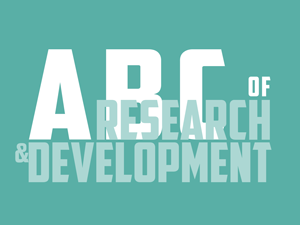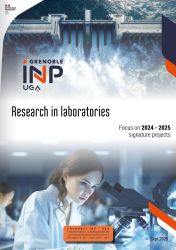
These results will belong to the client in return for payment of the service total cost. It is therefore important to formalise the technical content to be achieved in order to define the scope of the results transfer of ownership to the third party. This is the purpose of the contract: it includes the specifications and a clause transferring the results ownership to the service provider.
Symmetrically, the institution may request, via its research laboratories, a service from a third party (the service provider). This situation is frequent in valorisation projects to demonstrate concepts, develop software, etc. It is therefore necessary to be extremely vigilant about the contractualisation between the institution and the service provider. In practice, researchers often call on service providers they know (for example, a former post-doctoral researcher) who carry out the service under the status of self-employed contractor. The service is quickly concluded by the signature of a single estimate by the laboratory. However, without formalising the service in a contract, this can be problematic. Indeed, without a clause indicating the results generated by the service provider and any Intellectual property (PI) rights arising from them belong to the laboratory, the service provider is not obliged to transfer them. However, the service may consist, for example, in the development of an additional software brick to a basic software package, owned by the laboratory (institution), integrated into a valorisation project, which then needs to be transferred to a third party or to the SATT for example. It is therefore essential to ensure that you have full ownership of it beforehand. Without the prior signature of a service contract, it would be necessary, once the results have been obtained, to formalise the a posteriori transfer via a contract for the transfer of the IP rights that may arise from the results. If the service provider has gone beyond the initial specifications, which sometimes happens, he may demand that this assignment be paid for, since it is not included in the initial price. Also, the transfer after the event is generally a source of problems, with the service provider (often self-employed entrepreneurs) demanding that results ownership be shared. The signing of an upstream service contract is therefore absolutely essential.
Thus, the service contract includes, in particular, the specifications and a clause on the transfer to the laboratory (institution) of the intellectual property rights on the results. Depending on the nature of the results generated, it may also be mentioned that the models, illustrations and solutions identified will be the laboratory’s property. Sometimes, the quotation may include general sales clauses on the back. In this case, it is necessary to ensure that the specifications are respected in the quote and to check for the presence of a clause transferring all results ownership to the laboratory (establishment) as well as the related intellectual property.
More specifically, the clause on the ownership of results contains two aspects.
On the one hand, it provides for the transfer to the laboratory (institution) of industrial property rights, in particular, the transfer of technical creations that may lead to the filing of a patent application. It must be clearly stipulated that the service provider assigns its patent rights and that the names of any inventors of the service provider will be mentioned in the patent in accordance with the legal provisions (Article L. 611-9 of the Intellectual Property Code (CPI)). It will be mentioned that the service provider undertakes to ensure that the members of its staff named as inventors sign all the formalities necessary for the filing and maintenance of any patent applications that may arise from the results, both in France and abroad.
On the other hand, the service contract contains the service provider’s commitment to assign the authors’ economic rights (exploitation rights), in particular in the event that the results lead to software code. The clause assigning authors’ rights must contain the mandatory information specified in Article L. 131-3 of the IP Code. Thus, the following must appear
- The extent of the transfer of economic rights, i.e., the mention of each of the economic rights transferred (reproduction right and/or representation right and/or adaptation right), and whether the transfer is exclusive or not;
- The destination, i.e., the channels through which the work will be reproduced (paper, digital, Internet, etc.), for what purpose (Internet broadcasting, performance in a play, television broadcasting) and for what purpose (private, commercial or not, etc.);
- The place, i.e., the delimitation of the geographical territories in which the right is assigned;
- The duration.
For its part, the institution undertakes to respect the authorship rights (name) of the authors, members of the service provider’s staff, whose names are mentioned.



